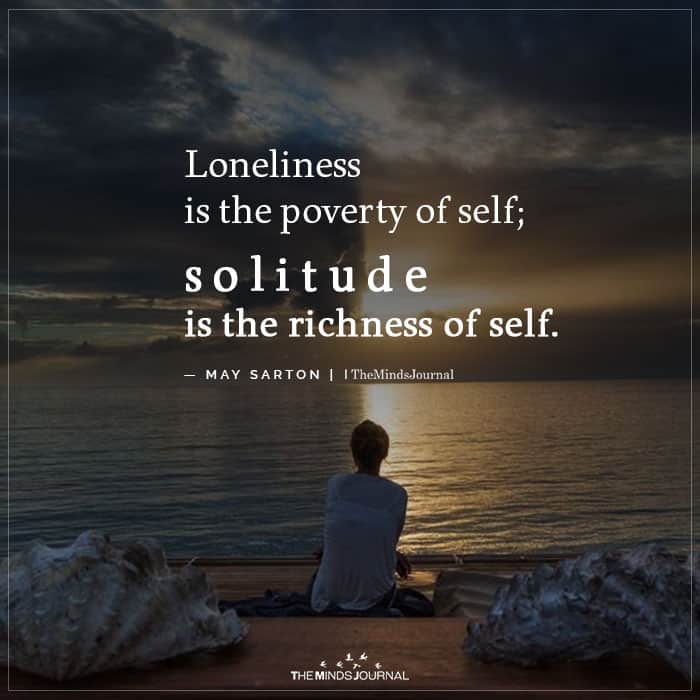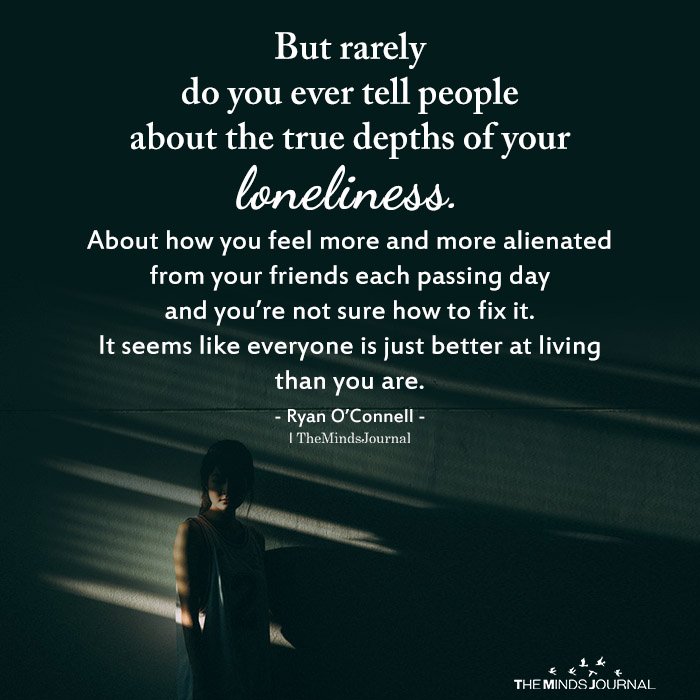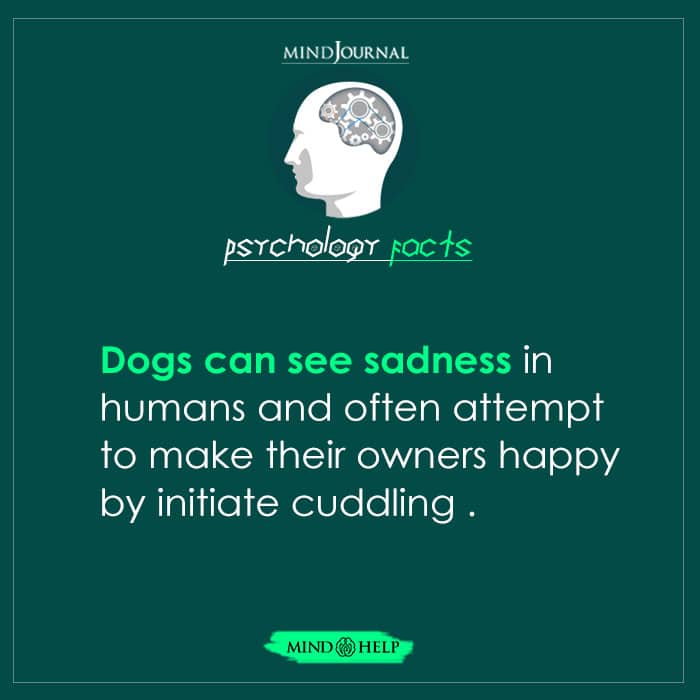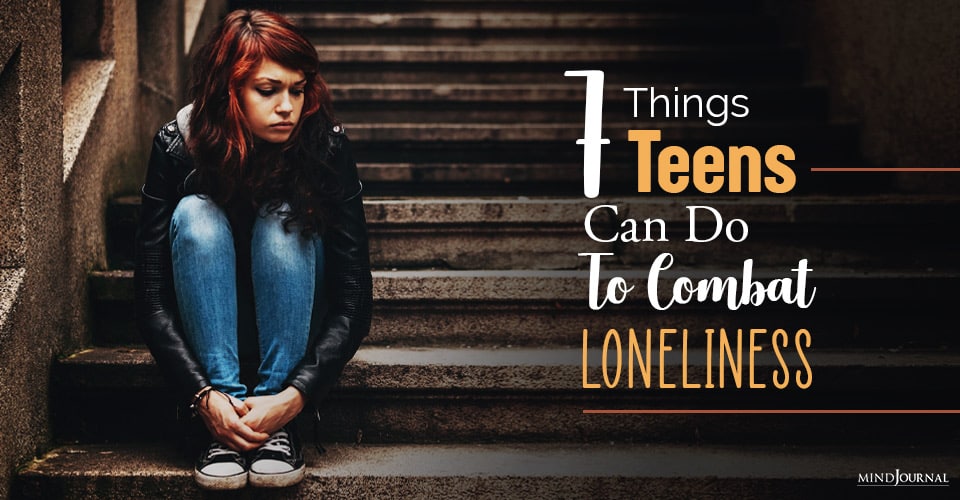It seems the opposite of what most folks would think, but more and more surveys are finding that teenagers and young adults today may be lonelier than any other age group—even older adults. If young people are in high school or college, around friends, playing sports, or at home with family, this loneliness just doesn’t seem to make sense.

Yet the British Broadcasting Corporation (BBC) recently did a large national survey and found that four out of 10 young people ages 16-24 were pretty lonely, describing themselves as: feeling misunderstood (not unexpected in teens); sad; suffering from FOMO (fear of missing out); not having anyone to talk with, and feeling detached from the world.
What’s concerning about this is that research shows there are medical and psychological consequences of loneliness, including the following:
- Emotional fallout: depression and increased risk of suicide
- Poor sleep and the consequences of sleep deprivation: cognitive impairment, inattention, emotional blunting, decreased productivity
- Inability to self-regulate: emotional overeating, excessive drinking, smoking, or drug misuse behaviors, which may serve as a means to soothe unbearable feelings of isolation. These have medical consequences, such as obesity, high cholesterol, known consequences of tobacco use (e.g., high blood pressure, cancer risk), and possible addiction.
- Greater risk of medical issues: problems with the immune system, leading to viral and other infections and inflammatory illness

Read Surprising Ways Being Lonely Impacts Our Health and Wellbeing
What Causes Loneliness In Young People?
So, what causes loneliness? In the medical and psychological literature, there are three causes of loneliness in all age groups.
1. First is the loss of a loved one or someone to whom one has a strong attachment—a death or breakup, loss of a job, or leaving a community, such as a high school, college, job or the military.
2. Another cause is the feeling of being excluded from others, such as peers, family, or a community. This carries with it feelings of low self-esteem, devaluation, or a sense of absence of acceptance.
3. And the third is super important. Loneliness does not necessarily mean being alone. It’s the feeling of aloneness even in the presence of others . Loneliness is a perceived, individual experience. There’s a sense of detachment, alienation, and isolation.
Teens and young adults may be more vulnerable because of typical developmental—they are in the process of forming a sense of identity and seeking who they are and where they belong in the world. This is usually a stressful and confusing period in life, often filled with drama and loss or changes in relationships.

Young people also haven’t developed the coping skills of adults to deal with challenging situations, like tolerating the feelings of isolation. Their brains haven’t developed fully enough to dampen the power of their emotions—they can’t yet use their higher, rational abilities to regulate their feelings, reactions, and impulses. These processes may make FOMO more intense.
On the other hand, the BBC found that among lonely teens, empathy actually increased. So, for all the challenges it presents, the experience of loneliness may foster a greater ability to put oneself in another person’s shoes.
What Can Young People Do To Combat Loneliness?
If there’s a young person in your life, it’s important to be aware of this growing trend in loneliness. And if you know a teen or young adult who may be struggling with these feelings, here are some tips to share with them that may help to prevent or diminish loneliness.
1. Extend yourself by giving to others.
Reaching out to others is key. This may be helping others in need, becoming a volunteer to provide services in your neighborhood, or joining a community organization.
The process not only helps extract you from physical isolation, but the gratitude of connecting with others is a relief. We also know that the process of giving releases oxytocin in the brain, which is instrumental in feeling attached.
Read 8 Ways To Tell If He’s With You Just Because He’s Lonely
2. Join a group with others who are experiencing loneliness.
The process of talking about your own story and hearing the experience of others is often really helpful in not feeling so alone. Humans respond empathically and in other emotional ways to the stories of others. Since lonely teens may have increased empathy, these interactions enhance mutual feelings of affirmation and validation and improve self-esteem.
3. Get a pet.
There is a wealth of research on the value of pets for emotional well-being. These relationships also cause the release of oxytocin as a consequence of attachment. Oxytocin is a powerful chemical in the brain that promotes feeling soothed and in touch with others. Pets provide emotional support and connection. Caring for pets is a joyful experience.

Read 15 Ways Your Dog Says ‘I Love You’ According To Veterinarians
4. Practice mindful awareness.
Loneliness is your subjective feeling and perception. Many folks who are lonely experience their situation as “the way life is.” If you see this as your fate, it may well lead to a lack of motivation to change things—a self-fulfilling prophecy.
Remember that thoughts are not facts. So, nailing down some specific negative thoughts you have about your feelings of loneliness may be a start in helping you to realize how exaggerated they are. Things like, ‘I’m not worth anything and nobody likes me,” or “There is no hope for connecting with others, they all like somebody else,” are examples of how we all have thoughts that are overblown or just wrong.

The point of this kind of mindful awareness to change emotions is to identify the thoughts that are exaggerated or distorted and then work (with a therapist, and then on your own or with a family member or friend) to change this way of thinking.
Read 7 Simple Strategies to Increasing Mindfulness in as Little as 30 Seconds
5. Try to understand why you are lonely.
You may feel lonely because of a significant loss, by being excluded from a group or a community, or because of your state of mind, even in the company of others. It’s really important to understand that loneliness is a personal feeling. Not everyone who loses someone feels lonely. Some just feel sad.
If you feel lonely even in a crowd, it may be that earlier in life you did not have people around you who encouraged connection, understanding, or empathic communication. By figuring out from whence your personal loneliness stems, you can then find ways to address it. The key is that emotional struggles which require a change can only be solved if we find the root cause, so we can take the best next steps.
6. Immerse yourself in creative arts.
While you may find yourself alone at times, engaging in the arts can often provide relief. When we read a good book, watch a captivating movie, or lose ourselves in music or a work of graphic art, we may be able to distract ourselves from the painful feelings of loneliness and improve our mood. The arts are not only distractions, but also have healing properties in themselves.
Read 20 Things Highly Creative People Do Differently
7. Join a community.
We, humans, are pack animals, not hermits. Our brains are wired for social interactions and connection. Communities are organized around missions—religious, spiritual, political, and others. They bring us together with common goals. They also help us feel that we are part of something bigger than ourselves.
Keep in mind that while we hope you’ll share these tips with a young person in your life, they are great for anyone, regardless of age. It’s not pleasant to feel lonely, and it may take some effort to overcome the painful feelings of isolation. But with personal effort and the support of others, there are ways we can feel connected and renew a sense of personal well-being.
This article originally appeared on and was written by the author (Dr. Gene Beresin) for the Clay Center for Young Healthy Minds. Republished with permission.











Leave a Reply